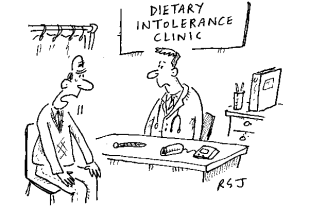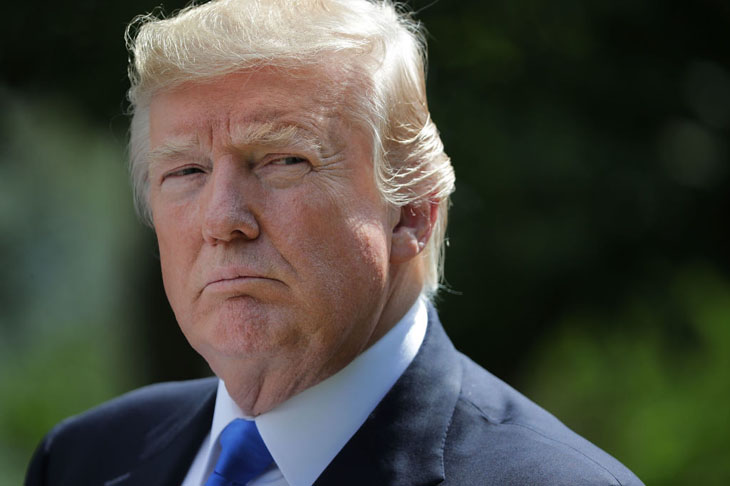Kiev

There is no lavatory paper to be found in government buildings in Kiev. Plan ahead, locals advise, if you visit a tax office, the council or some other arm of the bureaucracy. This state of affairs is one small sign of the corruption that pervades Ukraine. Even the trifling sums spent on toilet roll are stolen by dishonest officials. Patients bribe doctors to get treatment; students bribe professors to pass exams; citizens bribe tax inspectors… actually, many people don’t bother with tax in the first place, working instead in a vast shadow economy.
Two Ukrainian journalists tell me all this as we sip drinks in a surprisingly expensive Kiev café. (The prices are a sign of the underground cash economy where real incomes outstrip the meagre salaries in official figures.) One of the journalists — I’ll call him Mikhailo — is my guide. He learned English by listening to the Reith lectures on Radio 4 and speaks in the clipped tones of a Pathé newsreader. He recounts the notorious story of a minor official found with a vault under his house, a literal treasure-trove of art, antiques, jewellery and suitcases full of cash. The official is not in jail. ‘Regrettably, 80 per cent of our judges are corrupt.’ The other journalist — I’ll call her Svitlana — works in a news agency that specialises in covering official corruption and its cousin, organised crime: a job that her friends are convinced will get her killed. She tells me, smiling, that they even did a story on their own office building because it was so corruptly run by a state enterprise. Both journalists say that the Ukrainian mafia is allied with the Russian mafia and are used by the Kremlin to exercise influence here. They are convinced that the war with Russian-backed separatists in the east of the country rumbles on because the two mafias profit from it. Into this murky landscape steps the US government’s new Special Representative for Ukraine Negotiations. The Obama administration did not have such a special envoy and the man appointed now, Kurt Volker, is known as a Russia hawk. That fact alone might be seen as surprising given the prevailing narrative on Trump and the Kremlin. We meet at the US ambassador’s elegant 19th-century residence in old Kiev and Volker immediately dismisses Russian protestations that they are mere bystanders to events in eastern Ukraine. ‘Even Russian officials have to smile when they say that,’ he says. ‘Russia is in eastern Ukraine; there is no debate over that. It is a conflict that Russia is directly engaged in.’ But he goes on: ‘Russia is making a miscalculation. The effort to take this territory is not actually working very well. It is turning Ukraine more and more towards the West, the opposite of what Russia wants.’ He has just returned from visiting the Ukrainian side of the front line. ‘It is not a frozen conflict,’ he says. There are 1,000-1,500 ceasefire violations a day, and casualties are up 65 per cent on last year. ‘The human toll is dramatic. We’ve seen more people killed this year than in the preceding two years. This is a hot war.’ Obama wrestled with the problem of ending this war — and failed. The Russian annexation of Crimea stands, a violation of treaty and of international law. What would Trump do differently? Volker speaks about ‘making a push’ to solve the conflict and trying to ‘get the right strategic dialogue going’ with Moscow. More dramatically, the US under Trump is considering a step Obama never took: arming the Ukrainians. Volker tells me this is ‘actively being reviewed’. A Kremlin spokesman, responding to these remarks, said US arms would increase tension on the front line and delay resolution of what he called ‘this internal Ukrainian issue’. Decoded: if you escalate, so will we. Moscow believes it has vital interests in Ukraine: the fate of millions of ethnic Russians and the security of the Motherland itself. In any test of wills between the US and Russia over Ukraine, surely Russia would prevail, I say to Volker. Moscow is said to have put the biggest concentration of tanks in Europe on Ukraine’s border. Sending arms to Kiev might start something that Moscow would finish. ‘I would say the opposite is actually more likely,’ he replies. ‘If Ukraine is in a strategically weak position and Russia in a strategically strong position, that gives Russia the opportunity to play light warfare along the line of conflict. It holds this threat over Ukraine. [US] weapons, ones that would allow Ukraine to defend itself, to take out tanks for example, would actually help to change that calculation. The argument that it would be provocative to Russia or emboldening of Ukraine is just getting it backwards.’ If the US does arm Ukraine, would that mean Trump has ceded control of Russia policy to the ‘grown-ups’? This is a group within the administration which is said to include Secretary of State Rex Tillerson, Defence Secretary James Mattis, and a foreign policy establishment that believes Russian ‘active measures’ have been deployed across a broad front from Ukraine to the US presidential election. As the US commander in Europe, General Curtis Scaparrotti, said recently: ‘Russia seeks to undermine this international system and discredit those in the West who have created it.’ This is not at all what Trump says he believes. Yet American diplomats understand that when the President met Vladimir Putin privately at the G20 summit, he insisted Ukrainian territory had to be restored. The problem of Ukraine was an obstacle to US relations with Russia, Trump supposedly said. This brings to mind the conspiracy theory about US air-strikes against the Syrian government. That largely symbolic act was followed by US withdrawal of military support for the rebels fighting Moscow’s ally, President Assad. What if Trump is talking tough now so as to make concessions later? Bohdan Yaremenko, a well-connected former Ukrainian diplomat, said the Kremlin might not even wish to get the concessions. Sanctions were not really hurting them, he said, and conflict with the West shored up domestic support: ‘Russians need conflict in Ukraine as a tool of bargaining with the Americans and the rest of the world.’ So what is Trump up to? There is always the suspicion that he just makes things up from tweet to tweet. Still, the policy on Ukraine might be evidence that he is the victim of a conspiracy of lies about his links to Russia. Taken at face value, the policy certainly does not fit the narrative that he is a Russian stooge. Peace in Ukraine, then, may well depend on Trump’s mysterious relationship with Vladimir Putin.
Paul Wood is a BBC correspondent and fellow of the New America foundation.






Comments